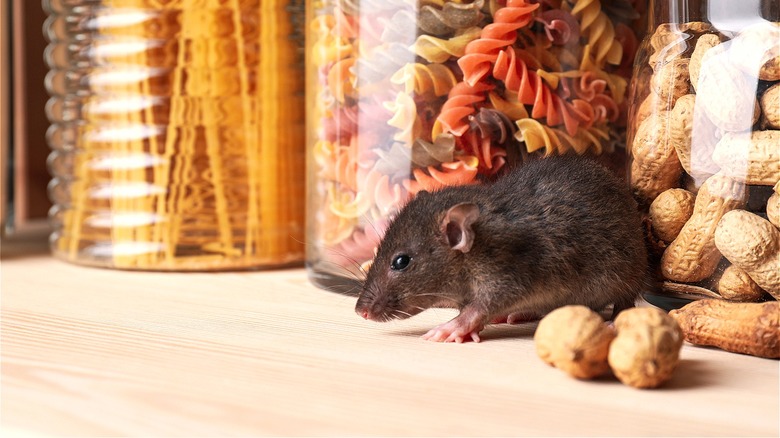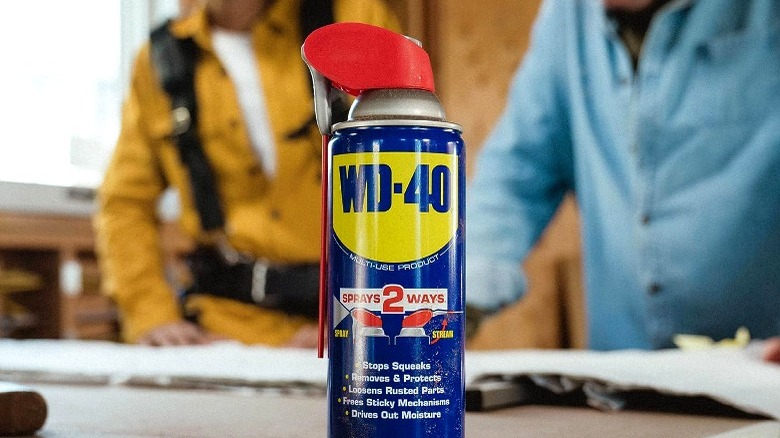How To Keep Mice And Rats Out Of The House With A Handy Can Of WD-40
We may receive a commission on purchases made from links.
If you find evidence of mice or rats in the home, you may already have a solution to get rid of them in the garage. WD-40, a type of automotive-based lubricant, rust remover, and degreaser, turns out to also be an easy-to-use tool for keeping rodents away thanks to its powerful scent. Though there are some safety precautions to consider when using this bio-solvent, you might want to give it a try the next time you spot a mouse or rat scurrying around the corner.
In many ways, WD-40 can keep your home bug-free and rodent-free if you use it as a preventative barrier around the home's exterior. Doing this helps ward off invading pests who really want to find a way in. Since most mice and rats are looking for access to food, they're particularly interested in moving into areas where there's a food source and less willing to do so in areas where chemicals that could harm them exist.
What makes WD-40 a powerful rodent deterrent
While the company doesn't disclose all the ingredients contained within its product, WD-40 does contain components that make it a lubricant. While this isn't the same as a toxic chemical that will immediately kill a rodent just by breathing it in, the smell of the lubricant acts as a warning to rodents to stay away.
Before using WD-40 around pets or in areas where children play, be mindful of the risks. The biggest risk here is hydrocarbon poisoning, per The Merck Manuals. The chemical itself will line the gastrointestinal lining of the animal and the lungs, creating respiratory distress. This is much the same way that it impacts mice and rodents. If you plan to use this substance within your home, always focus on areas where pets and children aren't likely to ingest it.
To keep mice and rats out of your house using WD-40 safely, use it outdoors, spraying it as a type of barrier that wards off the invading critters. This is the best way to minimize risk to those within your home but still get the benefits of repelling rodents. Note, though, that it's not likely to be enough to get those rodents in the house to leave. For that, you may wish to contact a professional exterminator or use other natural remedies for rodent control that are safe inside the home.
How to use WD-40 against mice and rats
Using a can of the WD-40 spray, move around the exterior of your home to find potential entrance points. Look under the siding and the eaves in your roof. You may also want to look at the foundation for cracks, even very small ones. A mouse can get into a crack that is under an inch wide (and sometimes half of that!). Spraying the WD-40 on these surfaces will prevent mice and rats from moving toward that space, eliminating the risk that they gain entrance into your home.
To make this process effective, take away any type of attractant present. If there's a wood pile outside of your home, move it. If there is a food source, like a bird feeder or food scraps from a spilled garbage can, remove and clean up this area. Since mice and rats are always one-track-minded in trying to find food, they're not likely to want to come into your home if it smells like WD-40 and there's no food nearby that makes them want to come in.
You'll need to spray plenty of the chemical into the area to encourage a strong enough scent to keep the rodents at bay. You may also need to reapply it every week or so, especially after rain showers, to keep enough of the scent present to work as a deterrent.


